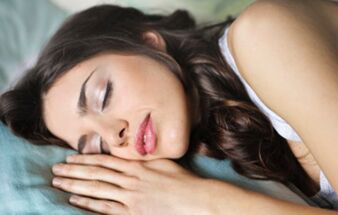关于睡眠的8个流言
|
1. Adults need five hours or less of sleep Extensive evidence shows that consistently getting five hours of sleep or less greatly increases risk of adverse health consequence, like that of cardiovascular disease and early mortality. They say this myth poses the most serious risk to health from long-term sleep deficits. 2. Drinking alcohol before bed will help you sleep
Many people think a drink before bed will help them have a good night's sleep. Robbins says, nope – it's a myth. A drink before bed may help someone fall asleep, but it dramatically affects quality of sleep. It pulls a sleeper out of REM and deeper sleep. You may still spend time sleeping, but you won’t be fully restored. 3. Watching television in bed helps you relax before sleep A lot of people fall asleep in front of a TV in the bedroom, but watching television is not an optimal way to relax. Nightly news and other programming can lead to stress when we're trying to power down and can lead to insomnia, says Robbins. These devices also emit bright blue light, which tells our brain to perk up, not sleep. Avoid blue light from TV and phones and instead do things that relax you. 4. It’s best to stay in bed and try to sleep Many people think that if they’re having trouble falling asleep, it’s best to stay in bed and try. Unfortunately, if we stay in bed and keep trying unsuccessfully, we eventually associate our bed with insomnia. It should take about 15 minutes to fall asleep. If you’re waiting longer than that, get out of bed and change the environment. Instead, get up, do something mindless, like folding socks, and keep the lights low. Only return to bed when you feel tired. 5. Snoring is harmless Snoring can be harmless, but it can also be a sign of sleep apnea, a potentially serious sleep disorder. The researchers encourage patients not to ignore loud snoring. Instead, see a doctor to rule out sleep apnea since it may lead to heart stoppages or other illnesses. 6. Hitting the snooze button is better than getting up right away Most of us will be groggy from inertia when the alarm goes off, says Robbins, but forego the snooze button. Your body may go back to sleep, but it will be very light, low-quality sleep. Robbins suggests getting up and getting outside into the blue light of the day as quickly as possible. 7. Your brain and body can learn to function just as well with less sleep The experts say that when sleep is decreased, self-reported levels of sleepiness increase for the first several days before starting to plateau; but reduced sleep leads to sustained drops in performance. The study notes, "Further, nightshift workers, who habitually sleep fewer hours than day workers, face higher morbidity due to breast cancer and all-cause mortality than day workers." So while people may be able to “adjust” to less sleep and/or "circadian misalignment," they do so at the risk of serious health consequences. 8. Sleeping in on weekends is a bad idea For this one, the jury is out – the researchers admit that some myths still cause disagreement among sleep experts, and this is one of them. "Although sleeping in on weekends does disrupt the natural circadian rhythm, for people in certain professions, such as shift workers, it may be better for them to sleep in than to get fewer hours of sleep overall." |









